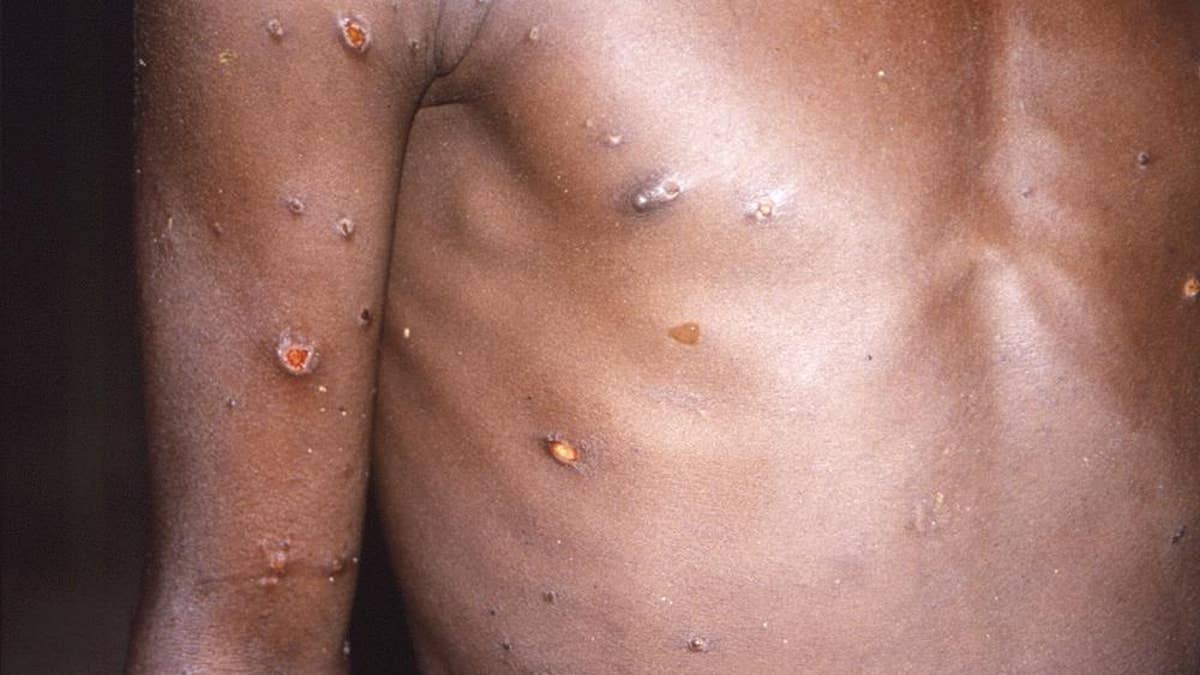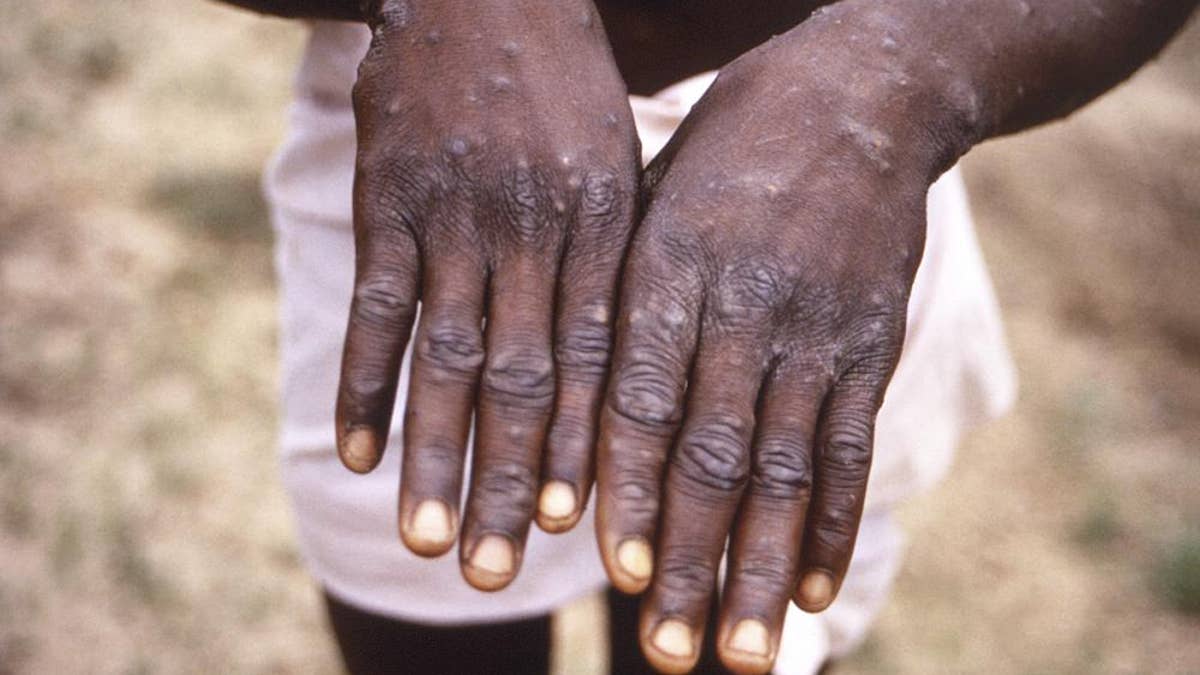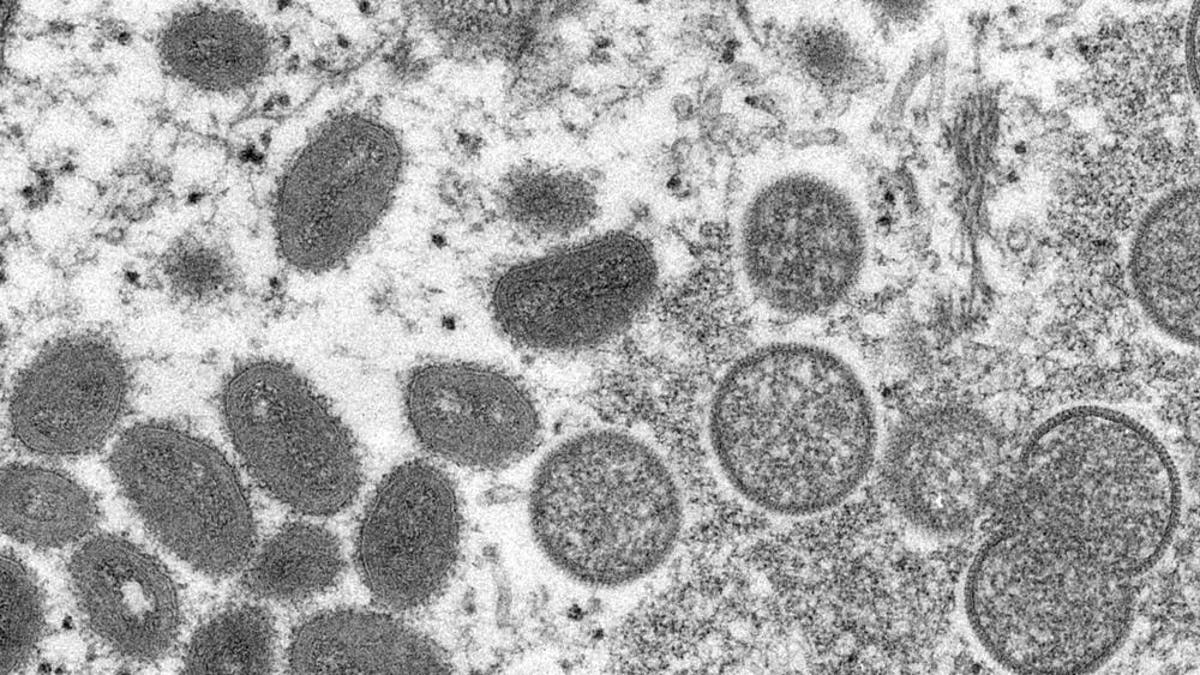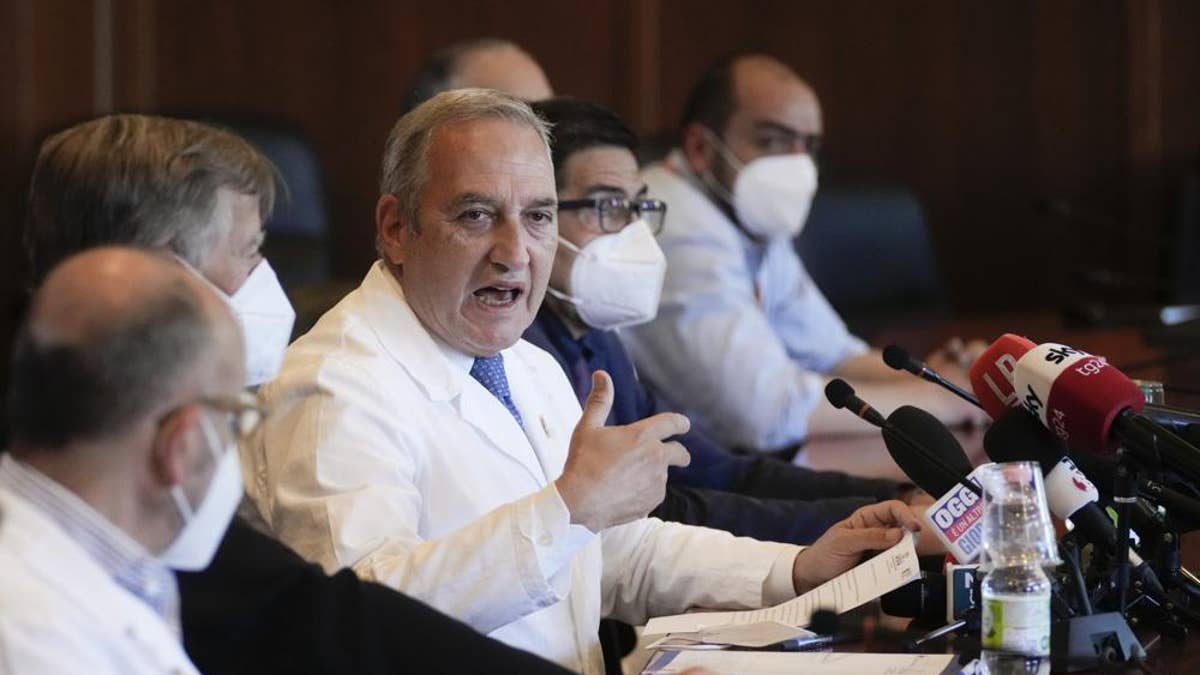Fox News Flash top headlines for May 20
Fox News Flash top headlines are here. Check out what's clicking on Foxnews.com.
Scientists who have monitored numerous outbreaks of monkeypox in Africa say they are baffled by the disease’s recent spread in Europe and North America.
On Friday, France, Germany, Belgium and Australia reported their first infections.
Cases of the smallpox-related disease have previously been seen only among people with links to central and West Africa. But in the past week, Britain, Spain, Portugal, Italy, U.S., Sweden and Canada all reported infections, mostly in young men who hadn’t previously traveled to Africa.
The World Health Organization (WHO) wrote that monkeypox has been reported from 11 countries that normally don't have the disease.
"There are about 80 confirmed cases, and 50 pending investigations. More likely to be reported," it said, noting that member states and other partners were working to understand more about the outbreak.
According to the Centers for Disease Control (CDC), symptoms of monkeypox include fever, headache, muscle aches, backache, swollen lymph nodes, chills and exhaustion.
Within 1 to 3 days (sometimes longer) after the appearance of a fever, the patient develops a rash, often beginning on the face then spreading to other parts of the body. The rash can look like chickenpox or syphilis, and scabs can form which then fall off.
The incubation period of monkeypox is usually from six to 13 days but can range from five to 21 days.
UK CONFIRMS MORE CASES OF MONKEYPOX
According to the World Health Organization, there were two cases of monkeypox in the United States in 2021, both related to recent travel to Nigeria. Nigeria has been experiencing a monekypox outbreak since 2017.
"I’m stunned by this. Every day I wake up and there are more countries infected," said Oyewale Tomori, a virologist who formerly headed the Nigerian Academy of Science and who sits on several World Health Organization advisory boards.
"This is not the kind of spread we’ve seen in West Africa, so there may be something new happening in the West," he said.
To date, no one has died in the outbreak. Monkeypox typically causes fever, chills, a rash and lesions on the face or genitals. WHO estimates the disease is fatal for up to one in 10 people, but smallpox vaccines are protective, and some antiviral drugs are being developed.

This 1997 image provided by CDC, shows the right arm and torso of a patient, whose skin displayed a number of lesions due to what had been an active case of monkeypox. (CDC via AP)
British health officials are exploring whether the disease is being sexually transmitted. Health officials have asked doctors and nurses to be on alert for potential cases, but said the risk to the general population is low. The European Center for Disease Control and Prevention recommended all suspected cases be isolated and that high-risk contacts be offered the smallpox vaccine.
Nigeria reports about 3,000 monkeypox cases a year, the WHO said. Outbreaks are usually in rural areas, when people have close contact with infected rats and squirrels, Tomori said. He said many cases are likely missed.
Dr. Ifedayo Adetifa, head of the country’s Center for Disease Control, said none of the Nigerian contacts of the British patients have developed symptoms and that investigations were ongoing.
WHO’s Europe director, Dr. Hans Kluge, described the outbreak as "atypical," saying the appearance of the disease in so many countries across the continent suggested that "transmission has been ongoing for some time." He said most of the European cases are mild.

This 1997 image provided by the CDC during an investigation into an outbreak of monkeypox, which took place in the Democratic Republic of the Congo (DRC), formerly Zaire, and depicts the dorsal surfaces of the hands of a monkeypox case patient, who was displaying the appearance of the characteristic rash during its recuperative stage. (CDC via AP)
According to the U.S. Centers for Disease Control and Prevention, monkeypox typically requires sustained contact with an infected person in order to spread.
On Friday, Britain’s Health Security Agency reported 11 new monkeypox cases, saying that "a notable proportion" of the most recent infections in the U.K. and Europe have been in young men with no history of travel to Africa who were gay, bisexual or had sex with men.
Authorities in Spain and Portugal also said their cases were in young men who mostly had sex with other men and said those cases were picked up when the men turned up with lesions at sexual health clinics.
Experts have stressed they do not know if the disease is being spread through sex or other close contact related to sex.
Nigeria hasn’t seen sexual transmission, Tomori said, but he noted that viruses that hadn’t initially been known to transmit via sex, like Ebola, were later proven to do so after bigger epidemics showed different patterns of spread.

This 2003 electron microscope image made available by the Centers for Disease Control and Prevention shows mature, oval-shaped monkeypox virions, left, and spherical immature virions, right, obtained from a sample of human skin associated with the 2003 prairie dog outbreak. Monkeypox, a disease that rarely appears outside Africa, has been identified by European and American health authorities in recent days. (Cynthia S. Goldsmith, Russell Regner/CDC via AP)
The same could be true of monkeypox, Tomori said.
In Germany, Health Minister Karl Lauterbach said the government was confident the outbreak could be contained. He said the virus was being sequenced to see if there were any genetic changes that might have made it more infectious.
Sajid Javid announced on Friday that eleven new cases of monkeypox have been confirmed. Javid tweeted that he had updated G7 health ministers on what is known about the spread of the virus.
There are now 20 cases recorded in the UK. Javid wrote, "Most cases are mild, and I can confirm we have procured further doses of vaccines that are effective against monkeypox."
Javid said the U.K. was stocking up on smallpox vaccines to help guard against monkeypox.
"I can confirm we have procured further doses," he said.
A smallpox vaccine offers protection against monkeypox since the two viruses are similar.
MASSACHUSETTS CONFIRMS FIRST CASE OF MONKEYPOX IN THE UNITED STATES THIS YEAR
Rolf Gustafson, an infectious diseases' professor, told Swedish broadcaster SVT that it was "very difficult" to imagine the situation might worsen.
"We will certainly find some further cases in Sweden, but I do not think there will be an epidemic in any way," Gustafson said. "There is nothing to suggest that at present."
Scientists said that while it’s possible the outbreak’s first patient caught the disease while in Africa, what’s happening now is exceptional.
"We’ve never seen anything like what’s happening in Europe," said Christian Happi, director of the African Centre of Excellence for Genomics of Infectious Diseases. "We haven’t seen anything to say that the transmission patterns of monkeypox have been changing in Africa. So if something different is happening in Europe, then Europe needs to investigate that."
Happi also pointed out that the suspension of smallpox vaccination campaigns after the disease was eradicated in 1980 might inadvertently be helping monkeypox spread. Smallpox vaccines also protect against monkeypox, but mass immunization was stopped decades ago.

Spallanzani infectious disease hospital director Francesco Vaia talks to reporters during a press conference, in Rome, Friday, May 20, 2022. (AP Photo/Andrew Medichini)
"Aside from people in west and Central Africa who may have some immunity to monkeypox from past exposure, not having any smallpox vaccination means nobody has any kind of immunity to monkeypox," Happi said.
Shabir Mahdi, a professor of vaccinology at the University of Witwatersrand in Johannesburg, said a detailed investigation of the outbreak in Europe, including determining who the first patients were, was now critical.
CLICK HERE TO GET THE FOX NEWS APP
"We need to really understand how this first started and why the virus is now gaining traction," he said. "In Africa, there have been very controlled and infrequent outbreaks of monkeypox. If that’s now changing, we really need to understand why."
The Associated Press contributed to this report.









































